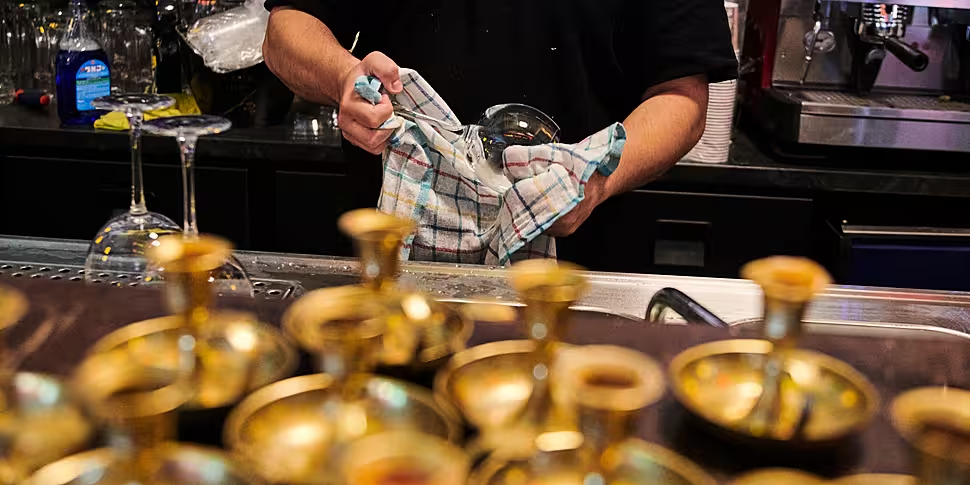The risk to unvaccinated staff is the "elephant in the room" in the debate around the return of indoor dining, according to Professor Kingston Mills.
The Trinity College academic says it's "complete nonsense" to suggest someone has to be in close contact with a case for 10-15 minutes in order to catch COVID-19 - saying it can happen with a single cough.
He was speaking as the Government prepares to finalise plans to allow indoor dining and activities reopen to vaccinated people later this month.
It's now expected unvaccinated children will also be allowed to dine in pubs and restaurants, once they're accompanied by a vaccinated adult.
Speaking on On The Record with Gavan Reilly, Professor Mills said he doesn't want to be get sucked into a debate with hospitality groups about reopening.
However, he said it's been proven that indoor activities are more likely to spread the virus than outdoor ones.
In terms of children dining indoors, he observed: "If they’re confined to their own family members… the increased risk of being in a restaurant is no different than being at home. The risk is if they come in contact with bar or restaurant staff who haven’t been vaccinated.
"That’s the big elephant in the room around all of this - you’re thinking about the people going to the pubs and restaurants, but not about the staff. Very often, the staff are young and many won’t have been vaccinated.
“They have to serve these people, and they’re getting close to them. This business about it has to be ten or fifteen minutes within two metres is complete nonsense: you can transmit the virus in ten seconds if someone coughs or sneezes without wearing a mask.”
He said such times were “dreamt up” to highlight longer-term contacts increase the risk of transmission - something which, while true, doesn't account for how quickly the virus can actually spread.
Professor Mills also argued that other major reopening issues - such as the planned return of college students to campuses in September - aren't getting the same attention as the hospitality debate.
He said: “There’s a lot of other areas that are not getting the same amount of media coverage around what it means for them if we’re not all fully vaccinated by the end of August.
“It’s a huge issue for us [in universities]. We’ve been doing this rapid antigen testing… that’s one means, but it’s not foolproof. A better way is to make sure all our students are vaccinated before they return to face-to-face teaching.”
He said in-person teaching is a “fundamental part of training” the next generation of scientists and doctors - and the likes of Zoom are not really useful for practical training.
Long COVID
While younger people are less likely to get severe or symptomatic COVID-19, Professor Mills says the big question is around long COVID.
Long COVID is when people report symptoms of the virus - including fatigue or breathlessness - long after their initial diagnosis.
Professor Mills explained: "It affects as many as 20-30% of people [who get infected].
"In Britain, it’s estimated that are between one and two million people who have COVID.”
While data is not available around Irish cases of the syndrome, international figures suggest tens of thousands of people in Ireland could have long-lasting symptoms or problems related to COVID-19.
Professor Mills said long COVID is one of the major factors that should be considered when deciding reopening plans.
However, he said he is optimistic about Ireland's progress in terms of the pandemic.
He said: “I think Ireland is taking a fairly sensible approach to this. A lot of the scientists were shocked at the stance the UK took on this.
"For the sake of two or three more weeks, they could have most of their adult population vaccinated. We’re a little bit behind, but maybe about a month.
“If we manage to get everyone vaccinated and then we start on the under 18 cohort, I think we can be back to normal.
"Unless, of course, there’s another variant that emerges - that’s the nature of the virus. [But] the good news is the companies that make the vaccines are ready to test new versions that are designed specifically to protect against the Delta variant."









